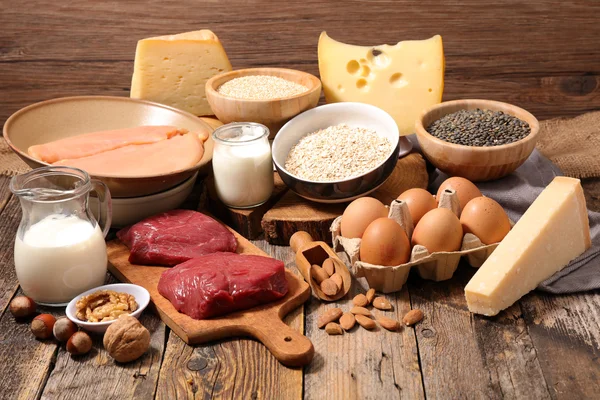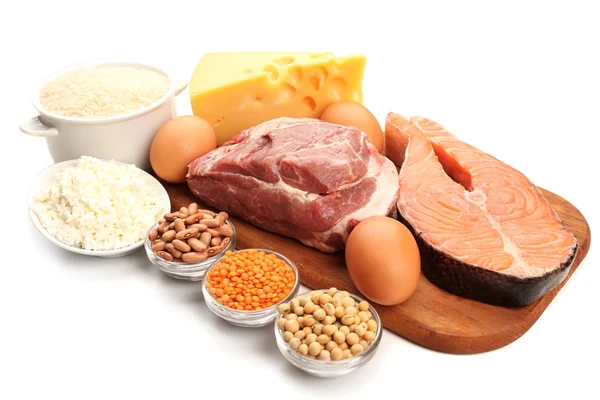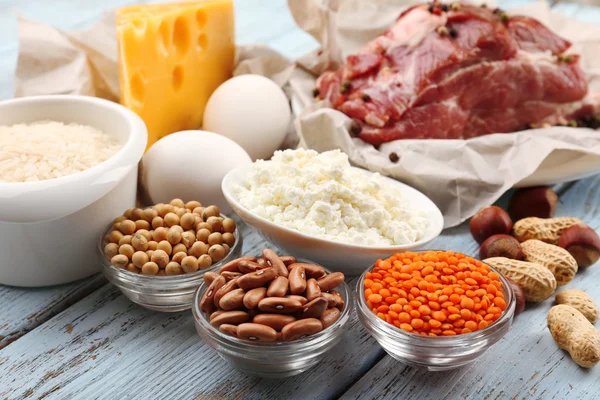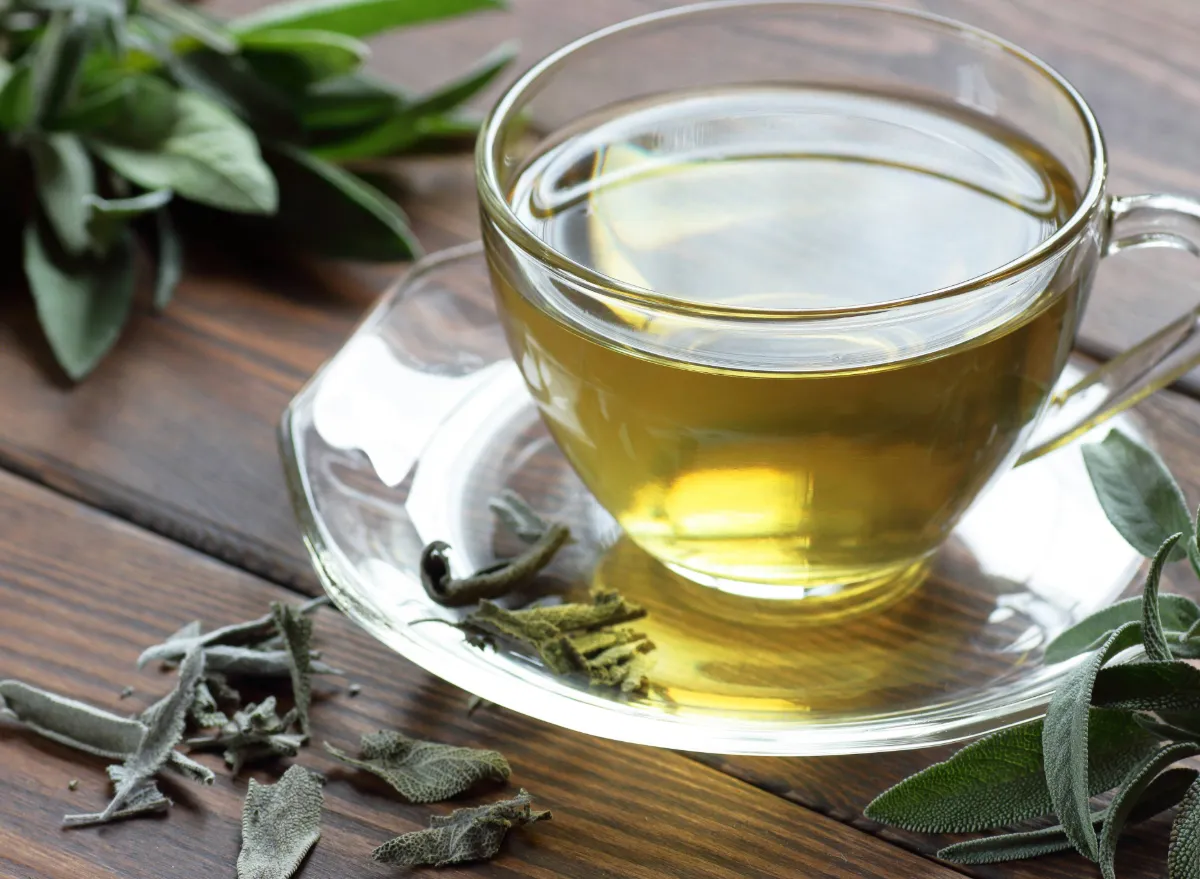A look at “Amazing Benefits of Eating Protein” Protein, often hailed as the building block of life, plays a pivotal role in maintaining health and well-being. This macronutrient is vital for numerous bodily functions, and its importance cannot be overstated. In this comprehensive guide, we explore the Amazing Benefits of Eating Protein according to dietitians, shedding light on why you should make protein a fundamental part of your diet.
There’s a reason why bodybuilders and gym-goers fill their plates with protein. The benefits of protein are far-reaching, and eating more of this macro can help you lose weight, keep your metabolism humming, and both build and maintain lean muscle, which translates to more strength and less body fat (hello, toned arms and abs!).

The Recommended Dietary Allowance (RDA) for a sedentary adult is 0.8 grams of protein per kilogram of body weight or 0.36 grams of protein per pound of body weight. That comes out to an average daily intake of 46 grams of protein for women and 56 grams of protein for men, according to the United States Department of Agriculture (USDA).
10 Amazing Benefits of Eating Protein, According to Dietitians
Despite these public health-focused recommendations, research shows that many of us should be aiming for much more—sometimes even double these numbers. A 2016 review published in the journal Food & Function noted that an adequate daily protein intake for simply maintaining physical strength should be 1.0, 1.3, and 1.6 grams of protein per kilogram of body weight for individuals with minimal, moderate, and intense physical activity, respectively. Getting 1.6 grams of protein per kilogram of body weight was shown to help spur muscle growth when coupled with resistance training, according to a 2018 Nutrients study.
So sure, this superstar macro helps you build and maintain lean muscle, but it’s also responsible for a whole host of health perks. Below, read up on all the benefits of protein, and then fill your cart with The 15 Best High-Protein Foods to take advantage of everything this nutrient has to offer.
1. Supports Muscle Growth and Repair
Protein is synonymous with muscle health. The amino acids in protein are the essential building blocks for muscle tissue. Eating an adequate amount of protein aids in muscle growth and repair, making it a crucial component of any fitness regimen.
2. Facilitates Weight Management
Protein is renowned for its satiating effect. It keeps hunger at bay by promoting feelings of fullness. Including protein-rich foods in your meals can help control your appetite, potentially leading to reduced calorie intake and effective weight management.
3. Enhances Metabolism
Protein has a higher thermic effect compared to fats and carbohydrates. This means that the body expends more energy (calories) to digest and metabolize protein. As a result, a high-protein diet can boost metabolism and support weight loss efforts.
4. Aids in Blood Sugar Control
Protein can help stabilize blood sugar levels. When consumed with carbohydrates, it slows down the absorption of sugars into the bloodstream, preventing rapid spikes and crashes in blood sugar levels. This is especially beneficial for individuals with diabetes or those at risk of developing the condition.
5. Promotes Tissue Repair and Wound Healing
Protein is essential for tissue repair and wound healing. It facilitates the production of collagen, a protein critical for skin, bone, and connective tissue health. Adequate protein intake can expedite recovery from injuries and surgeries.
6. Supports Immune Function
The immune system relies on protein to produce antibodies and immune cells. A diet rich in protein helps bolster the body’s defenses against infections and illnesses, contributing to overall immune function.
7. Hair and Nail Health
Protein is a key component of hair and nails. Insufficient protein intake can lead to hair loss and brittle nails. Including protein in your diet promotes healthy hair and nail growth.
8. Hormone Regulation
Protein plays a role in hormone regulation. It helps in the synthesis of various hormones, including insulin and growth hormone. A balanced diet with adequate protein contributes to hormonal balance.
9. Supports Cognitive Function
Amino acids, the building blocks of protein, are essential for the production of neurotransmitters in the brain. These neurotransmitters are crucial for cognitive function, mood regulation, and mental well-being.
10. Maintains Healthy Bones
Protein is not just about muscles; it’s also essential for bone health. It aids in calcium absorption and supports the maintenance of strong and healthy bones, reducing the risk of osteoporosis.
How Much Protein Do You Need?

The recommended daily intake of protein varies depending on factors such as age, sex, activity level, and overall health. However, as a general guideline, adults should aim for at least 0.8 grams of protein per kilogram of body weight. Athletes and individuals looking to build muscle may require more, ranging from 1.2 to 2.2 grams per kilogram.
Sources of Protein
Protein can be obtained from a variety of sources, both animal and plant-based. Here are some protein-rich foods to consider:
- Animal Sources: Lean meats, poultry, fish, eggs, dairy products, and seafood are excellent animal-based protein sources.
- Plant-Based Sources: Legumes (beans, lentils, chickpeas), tofu, tempeh, nuts, seeds, and whole grains are great plant-based protein options.
- Dairy and Dairy Alternatives: Greek yogurt, cottage cheese, and plant-based alternatives like almond milk or soy yogurt also contain protein.
Balancing Protein Intake
It’s essential to strike a balance in your protein intake. Consuming too little protein can lead to muscle loss and other health issues, while excessive protein intake may strain the kidneys and lead to other complications. Consulting a registered dietitian can help you determine the optimal protein intake for your specific needs.
Conclusion: Embrace the Power of Protein
The Amazing Benefits of Eating Protein extend far beyond muscle building. From aiding in weight management to supporting immune function and cognitive health, protein is a dietary cornerstone for overall well-being. Incorporate a variety of protein sources into your diet to ensure you reap these benefits and maintain a balanced and healthy lifestyle. Remember, protein is not just a nutrient; it’s a key player in your journey towards a healthier you.
FAQs – Amazing Benefits of Eating Protein
Q: What is protein?
A: Protein is a macronutrient that is essential for building and repairing muscle tissue. It is also important for bone health, mood and cognitive function, a healthy immune system, and healthy skin, hair, and nails.
Q: What are the benefits of eating protein?
A: The benefits of eating protein include:
- Helps build and repair muscle tissue
- Helps you feel full and satisfied
- Boosts metabolism
- Reduces cravings and hunger
- Supports bone health
- Improves mood and cognitive function
- Supports a healthy immune system
- Promotes healthy skin, hair, and nails
- May help to reduce the risk of chronic diseases
- Is essential for pregnant and breastfeeding women
Q: How much protein do I need?
A: The recommended daily intake of protein for most adults is 0.8 grams per kilogram of body weight. However, some people may need more protein, such as athletes, pregnant and breastfeeding women, and people who are trying to lose weight or gain muscle mass.
Q: What are good sources of protein?
A: Good sources of protein include:
- Meat, poultry, and fish
- Eggs
- Dairy products, such as milk, yogurt, and cheese
- Legumes, such as beans, lentils, and peas
- Nuts and seeds
- Whole grains
Q: Can I eat too much protein?
A: Yes, it is possible to eat too much protein. Too much protein can put a strain on your kidneys and other organs. It is important to talk to your doctor or a registered dietitian to determine how much protein is right for you.
Here are some additional tips for getting enough protein in your diet:
- Include a source of protein at every meal.
- Snack on protein-rich foods, such as nuts, seeds, yogurt, or hard-boiled eggs.
- Add protein powder to smoothies, oatmeal, or yogurt.
- Choose lean protein sources whenever possible.
Protein is an essential nutrient that is important for overall health and well-being. By following the tips above, you can make sure that you are getting enough protein in your diet.









